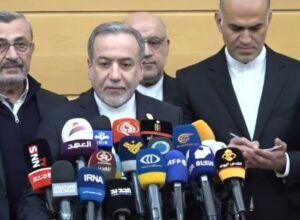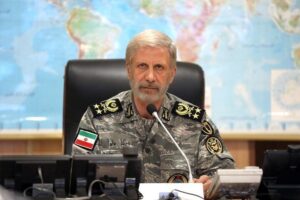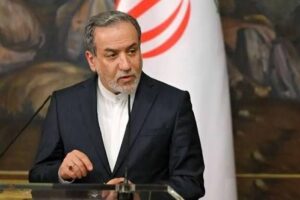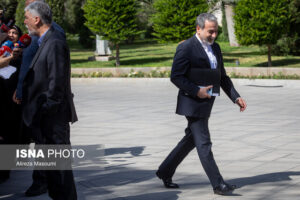On Sunday, Takashi Iwaya voiced his regret over the UN sanctions being reimposed on Iran amid allegations that Tehran violated the 2015 multilateral nuclear deal, calling for continued diplomatic efforts.
In a statement, Japan’s Foreign Minister said: “Japan has always emphasized the importance of resolving this issue through dialogue… based on the stance that the development of nuclear weapons by Iran must never be allowed. It is regrettable that the parties involved were unable to reach an agreement.”
He added: “Iran’s nuclear issue is at a critical juncture. Japan’s position, which prioritizes dialogue to resolve this issue, remains unchanged, and the momentum and will to continue these talks must not be lost.”
Under the 2015 agreement between Iran and the P5+1 group (the United Kingdom, China, France, Russia, the United States, plus Germany), Iran agreed to limit its nuclear activities in exchange for the lifting of sanctions.
However, during his first term, Donald Trump deemed the Joint Comprehensive Plan of Action (JCPOA) seriously flawed and unilaterally withdrew the United States from the deal in May 2018, reimposing U.S. sanctions. A year later, following breaches by the European parties to the JCPOA, Iran increased its nuclear activities.
In late August this year, the United Kingdom, France, and Germany sent a letter to the UN Security Council claiming that Iran was not complying with its commitments under the JCPOA, citing the snapback clause and activating it.
On Friday, a resolution aimed at extending the suspension of sanctions against Iran failed to pass in the Security Council, thus triggering the snapback mechanism as of early Sunday.
With the reinstatement of sanctions under six UN Security Council resolutions, companies, organizations, and individuals directly or indirectly involved in Iran’s nuclear program or ballistic missile development will be targeted.
The resolutions being reinstated under the snapback mechanism contain no oil-related sanctions on Iran. All Iranian oil and banking sanctions are unilateral measures imposed by the U.S. Department of the Treasury and remain in effect.

Aragchi says Lebanon visit focuses on regional security
Iranian Foreign Minister Abbas Araghchi arrived in Lebanon on Thursday afternoon to hold talks with the Arab country’s officials. Speaking upon arrival at Beirut’s Rafic






